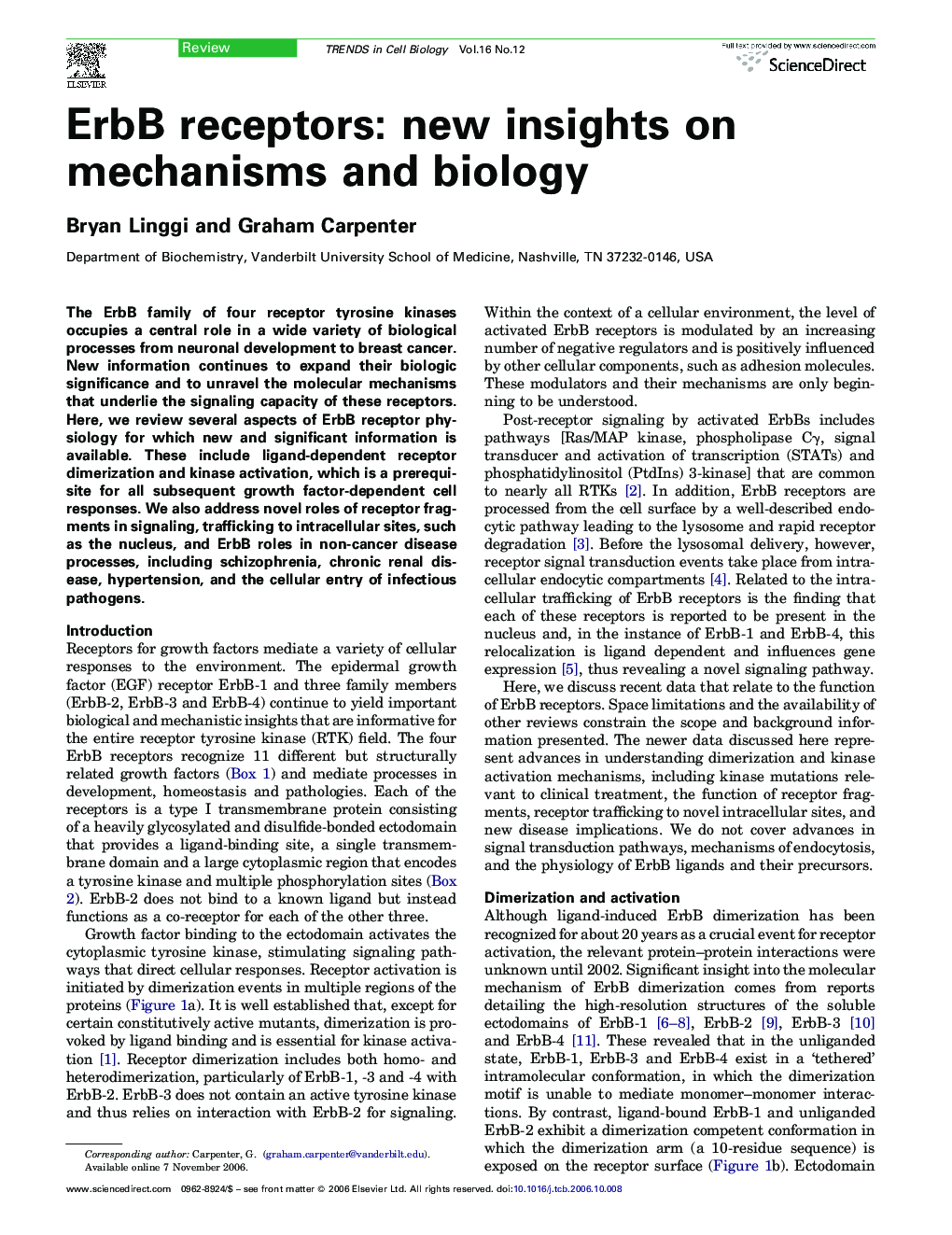| Article ID | Journal | Published Year | Pages | File Type |
|---|---|---|---|---|
| 2205307 | Trends in Cell Biology | 2006 | 8 Pages |
The ErbB family of four receptor tyrosine kinases occupies a central role in a wide variety of biological processes from neuronal development to breast cancer. New information continues to expand their biologic significance and to unravel the molecular mechanisms that underlie the signaling capacity of these receptors. Here, we review several aspects of ErbB receptor physiology for which new and significant information is available. These include ligand-dependent receptor dimerization and kinase activation, which is a prerequisite for all subsequent growth factor-dependent cell responses. We also address novel roles of receptor fragments in signaling, trafficking to intracellular sites, such as the nucleus, and ErbB roles in non-cancer disease processes, including schizophrenia, chronic renal disease, hypertension, and the cellular entry of infectious pathogens.
